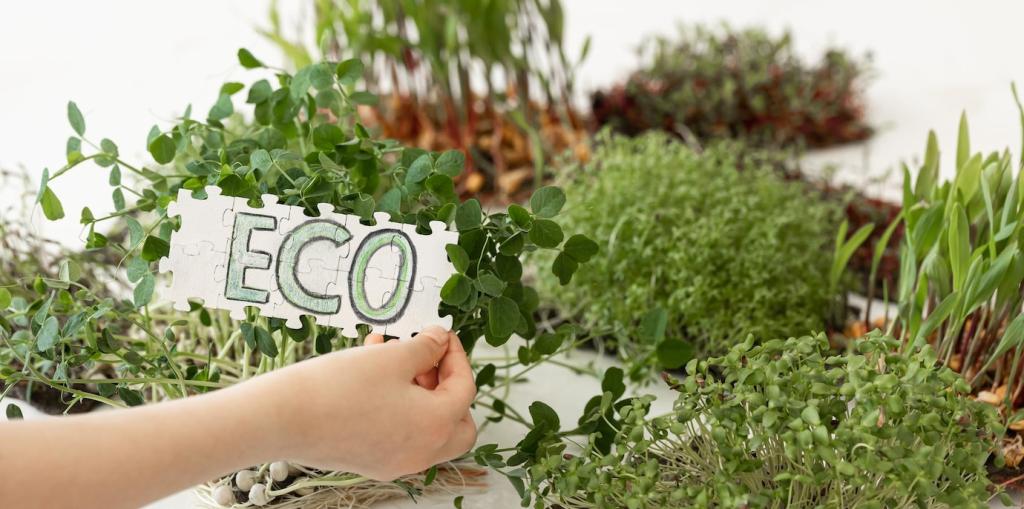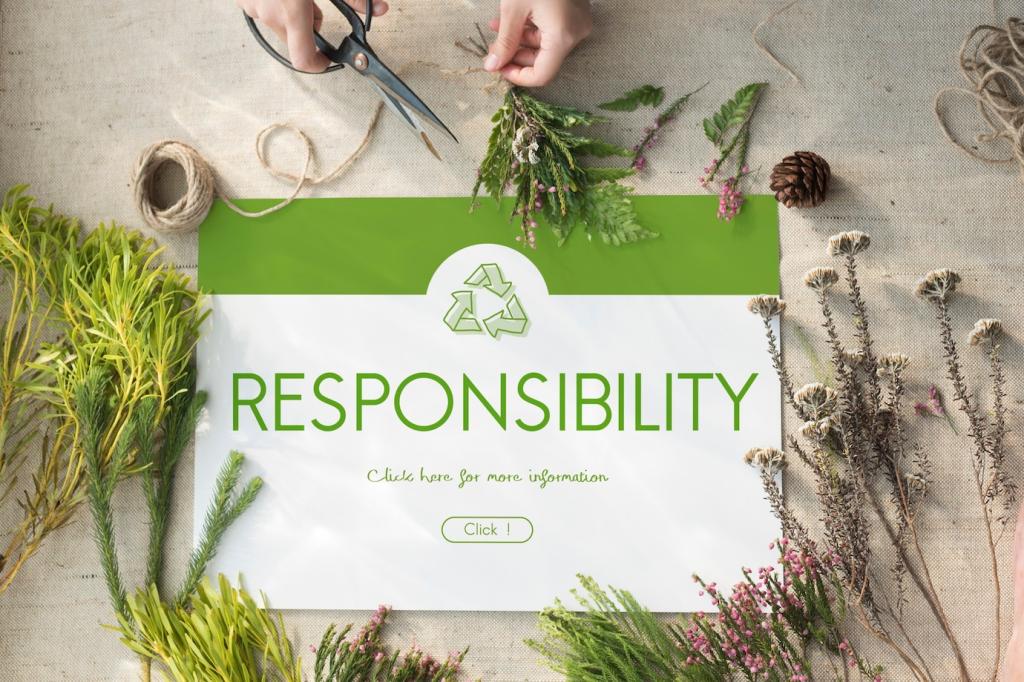Green Furniture: Longevity Through Proper Care



Microfiber First, Always
Dry microfiber lifts dust without scratching finishes or releasing chemicals. Work with the grain, swap cloths when they saturate, and avoid aggressive pressure. This five-minute sweep each week prevents gritty buildup that demands harsher cleaning later. What day will you pick?
Rotate, Rest, and Distribute
Rotate cushions and flip loose seat pads to even compression. Shift plant pots and lamps to prevent permanent dents and sun shadows. Distribute heavy loads across shelves with bookends. Tell us your rotation rhythm; we’ll feature clever routines from readers.

The pH-Neutral Standard
Most sealed wood and many laminates appreciate pH-neutral soap diluted in warm water. Wring the cloth nearly dry, wipe gently, then follow with a second, clean dry towel. Excess moisture swells joints, so restraint preserves integrity and reduces future repair needs.

Gentle DIY Cleaners That Work
For glass and metal, mix distilled water, white vinegar, and a drop of plant-based soap. For textiles, use mild, enzyme-based detergents sparingly. Spot test, blot instead of rub, and air-dry thoroughly. Share stains you’ve conquered so others can learn confidently.

Ventilation and VOC Awareness
Even low-VOC finishes off-gas shortly after application. Open windows, run a HEPA purifier, and let pieces cure fully before heavy use. If sensitive, choose waterborne finishes and Greenguard Gold products. Ask questions in the comments about labeling; we love decoding certifications.
Repair Culture: From Quick Fixes to Full Restorations
Loose chair rungs often need cleanup, fresh glue, and clamps. Carefully remove old adhesive, dry-fit, then use wood glue appropriate to the species. Protect surfaces with cauls, wipe squeeze-out, and let it cure fully. Tell us which joint gave you confidence.


Repair Culture: From Quick Fixes to Full Restorations
Before sanding, consider cleaning and re-oiling. When refinishing is necessary, mask edges, sand progressively, and choose durable, low-VOC oils or hardwax finishes. Apply thin coats, buff between, and cure patiently. Post your before-and-after; responsible refinishing can look and feel spectacular.
FSC-certified hardwoods respond well to humidity stability and modest oiling. Avoid silicone polishes that create patchy sheens. Use breathable waxes sparingly, buff thoroughly, and maintain pads under décor. Share a favorite oil brand and why it helped your tabletop glow again.
Materials Spotlight: Wood, Metal, and Textiles
Climate Control: Light, Humidity, and Placement
Sunlight: Friend and Fader
UV light fades dyes and dries finishes. Use sheer curtains, UV films, or strategic placement to soften rays. Rotate pieces seasonally to balance exposure. Show us a window trick that protected your favorite armchair without darkening the room’s joyful mood.
Humidity: The Goldilocks Zone
Aim for forty to fifty-five percent relative humidity for most woods and textiles. Use hygrometers, move pieces away from radiators, and avoid unvented basements. Stable conditions reduce cracks, warps, and loosened joints. Share your region and humidity hacks with fellow readers.
Breathing Space and Airflow
Leave a finger’s width behind sofas and storage to prevent condensation and scuffs. Encourage airflow with quiet fans, and avoid blocking vents. When the house breathes, furniture lasts longer. What rearrangement recently improved both comfort and the longevity of your favorite piece?
Photograph pieces in natural light, disclose repairs and finish types, and include care notes. Honest listings attract appreciative buyers who continue the stewardship. Share your favorite resale platforms, and we’ll compare fees, shipping options, and sustainability policies in a future guide.
Circular Choices: Resale, Donation, and End-of-Life
Offer durable items to shelters, community centers, or reuse nonprofits that match needs, not burdens. Clean thoroughly, tighten hardware, and attach manuals. Tell us organizations near you that treat donations responsibly, so our community map grows smarter and kinder.
